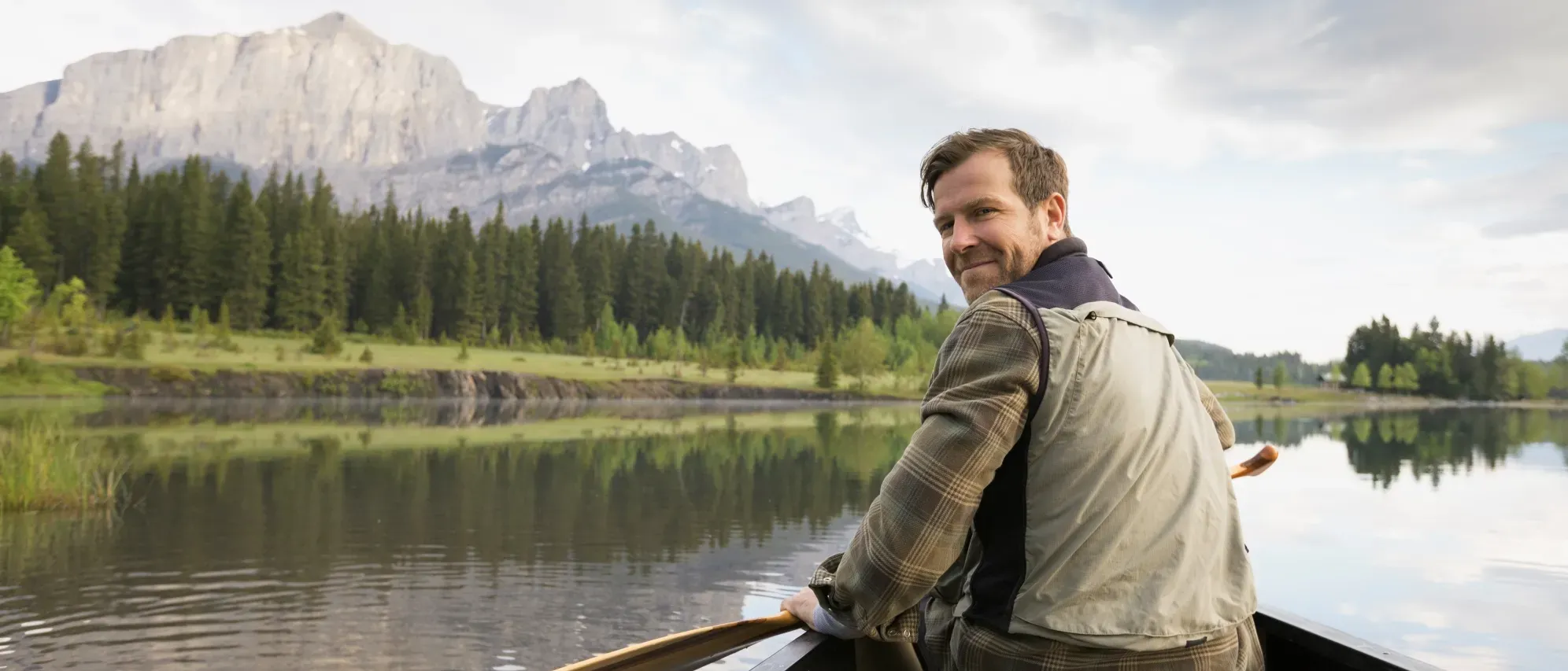Interview: Shaq Koyok, COP28 and Advocating for Malaysia's Orang Asli People
In a rapidly modernising Malaysian state, I’m always trying to capture the tension and pressure faced by my people, whose lives interact with and respect the natural environment. My work emphasizes the inequalities that exist between modern consumerism and traditional sustainable ways of life. My paintings are a reflection of my people and the rain forest in which I grew up, and to show the importance of nature to the Orang Asal. The presentation of artwork also captures a contemporary view of the struggle faced by Malaysia’s indigenous people and the aim is to contribute to a deeper understanding of multiracial Malaysia.”
1. As an artist, you are a voice for Malaysia's Orang Asli communities through art. Tell us how this journey began.
I started to paint about Orang Asli's issues when I was in university. I remember well that time my professor asked me to paint my identity as a Malaysian indigenous person. The story I told them was about the deforestation issues near my hometown. Then, the gallery started to become interested in showing my artwork to their gallery.
2. When did your interest in art begin?
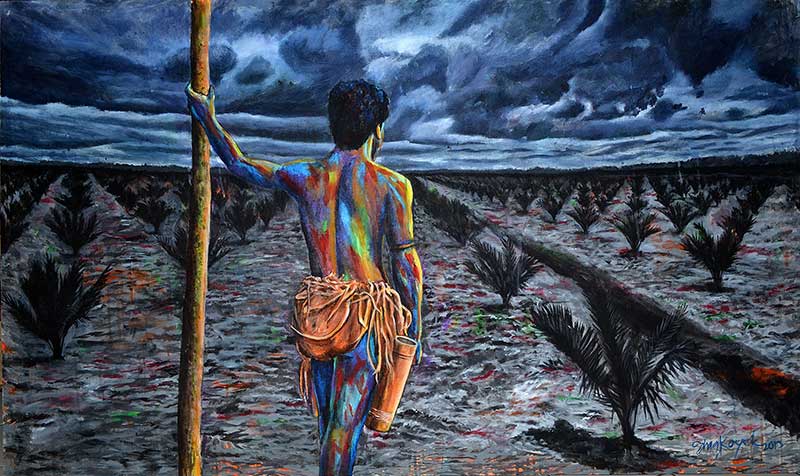
My passion for art started from an early age, I was so interested when I saw my older brother paint in front of me when I was five years old. I thought the art activities were quite relaxing and made it easy to communicate.
Then deforestation started to happen near my village when I was six years old; it really affected me mentally and left me with trauma until today. Every time I drew when I was in school, I drew about what happened in the forest.
3. Where did you study art?
I studied art at a Malaysian university called Universiti Teknologi MARA, Shah Alam, Malaysia, where I earned both a diploma and a degree in fine art.
4. Were you influenced by other artists or family members in your pursuit of art?
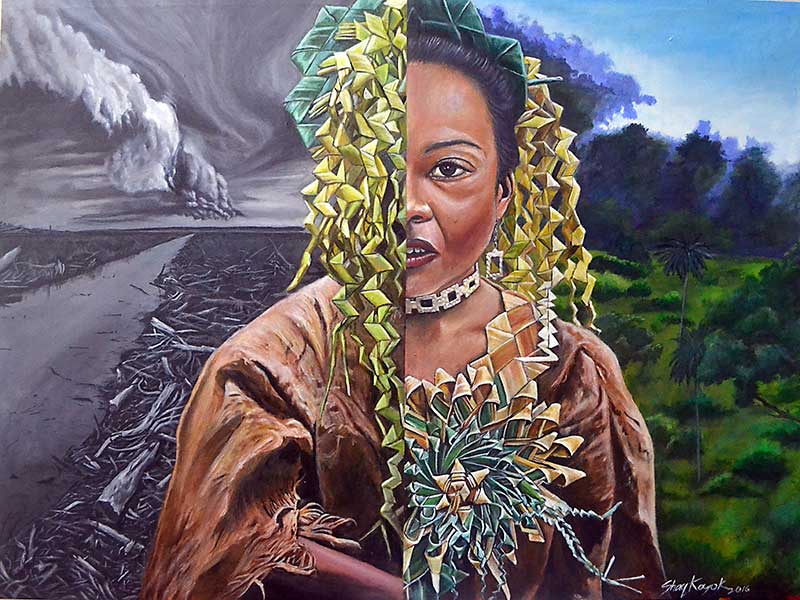
I was influenced by the indigenous artists in Australia mostly. I thought their artwork was very powerful in showing what happened to the community as a result of British colonialism in Australia.
5. Tell us about the impact of deforestation in Malaysia and how it shaped you as an environmental artist.
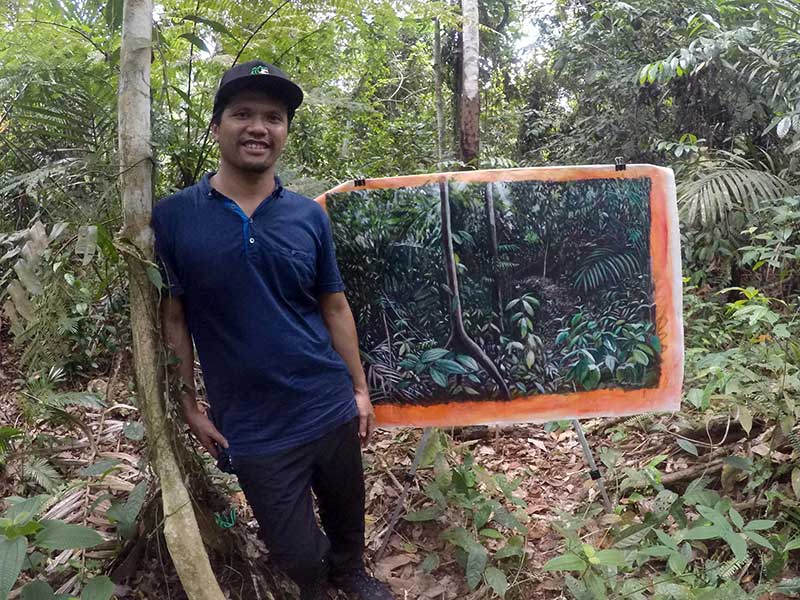
Deforestation is still a big issue in Malaysia today, but it mostly affects many indigenous peoples who live near the forest. In some states in Malaysia, logging contributed a lot to the state government but this resulted in many forests being destroyed and the profits did not go to the communities who were badly affected.
Deforestation not only affects wildlife but also worsens climate change. I feel a deep connection with the forest where I grew up, and this connection has really shaped my art until today.
I feel I can use my art to tell the story about how useful indigenous wisdom is to get people to understand how important the forest is to human life and also the health of this planet today. We all know how art can cross-boundary and translate the meaning more than words.
6. Which countries in the world have you exhibited your work?
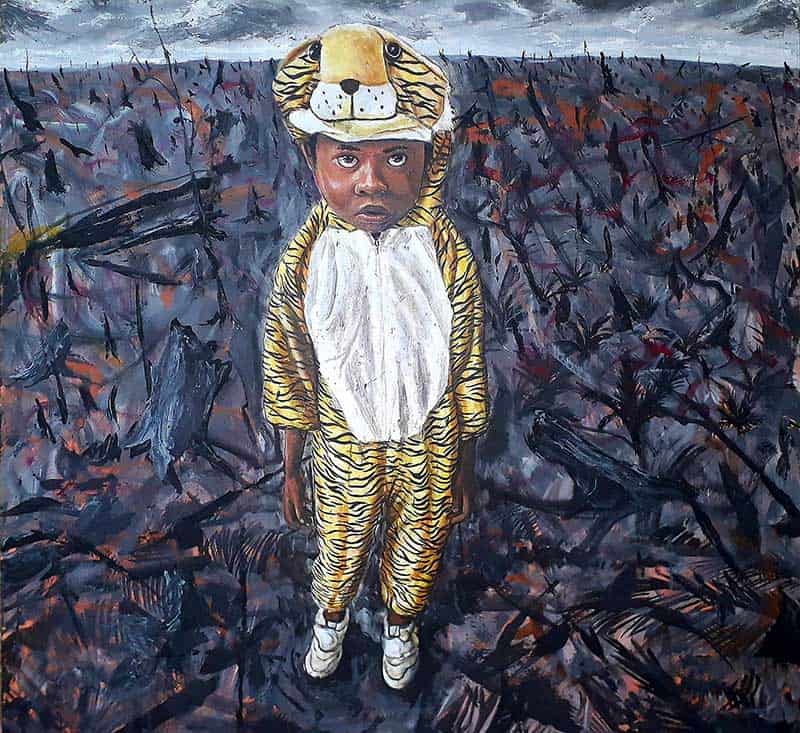
I exhibited at Bower Gallery, Melbourne, Australia, Venice Biennale, Italy, Beijing Bienalle, China, Malaysia Eye Group exhibition, Norlia's Gallery, London, UK. The ARTS KL. Miami Art Fair, Florida, USA; and Solo International Art Festival, Jawa, Indonesia.
7. How did you get involved with Climate Heritage Network?
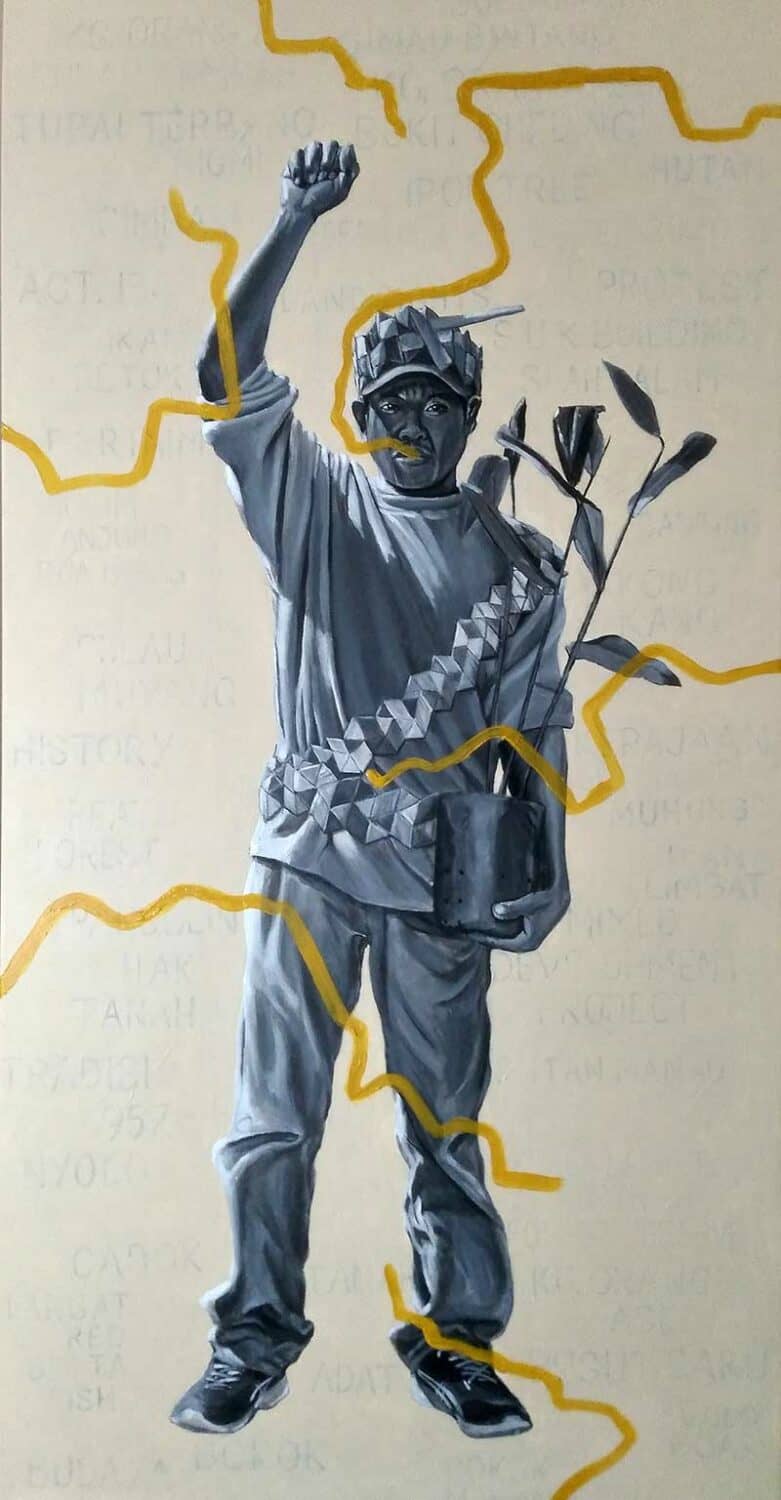
I started to know and be involved in the Climate Heritage Network when I joined the event organized by The Siam Society in Bangkok last January.
8. The Climate Heritage Network’s new Group of Friends of Culture-Based Climate Action at the UNFCCC, which the government of the United Arab Emirates proposes to launch at a High-Level Ministerial Dialogue on Culture-Based Climate Action to be held on 8 December at COP28 in Dubai is focused on strengthening political momentum for an effective, coherent, and coordinated action to support and advocate for culture and heritage-based climate action as well as for the protection of culture and heritage from climate impacts. How will you support the Friends of the Group of Friends Initiative?
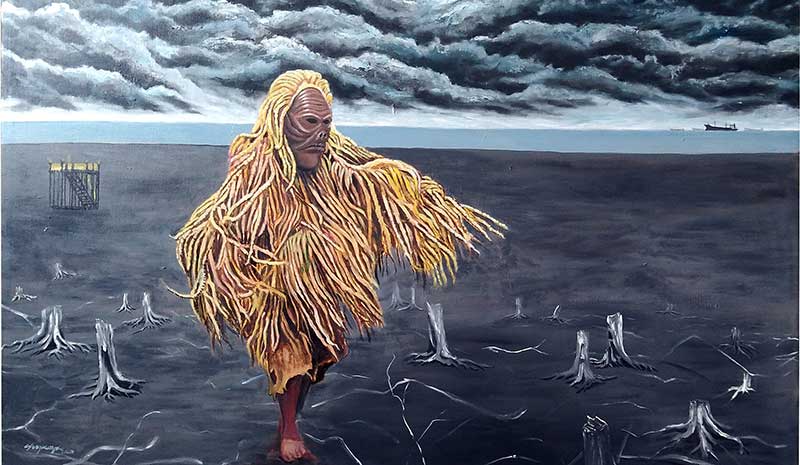
I hope with my connection and influence I can try to invite the Malaysian Culture Ministry to be part of this meeting.
9. Will you attend the 8 December ministerial in person at the UNFCCC COP28?
Yes
10. Any message you would like to share:
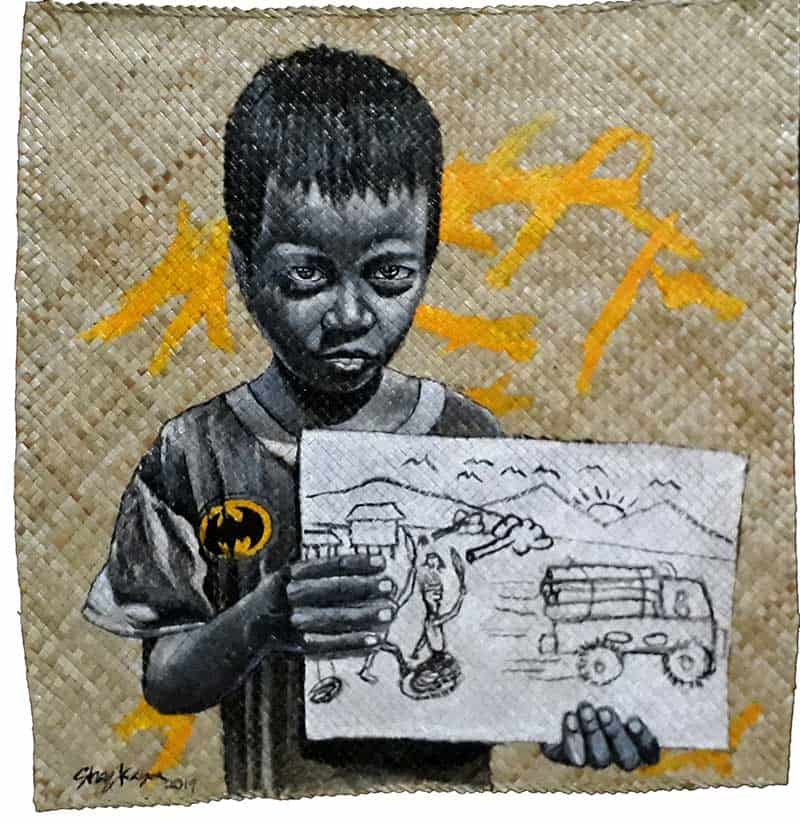
I strongly believe the culture should be part of the agent of change in combating the climate change issue. It is crucial to include many parties in this journey together we can leave anybody behind because we share this planet together.
11. How can people reach you?
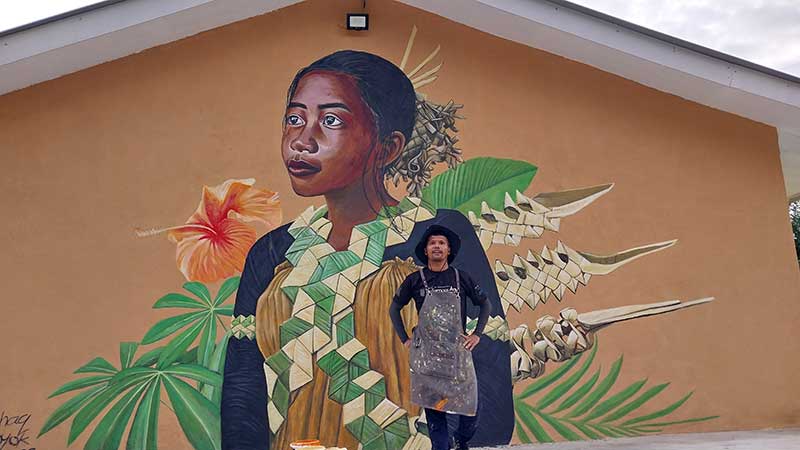
I will be part of the Artivist Network Organisation which will based in the Civil Society Organisations hub CSO Hubs in Dubai. But you can also check my social media, blogs, and email here the links: https://linktr.ee/shaqkoyok
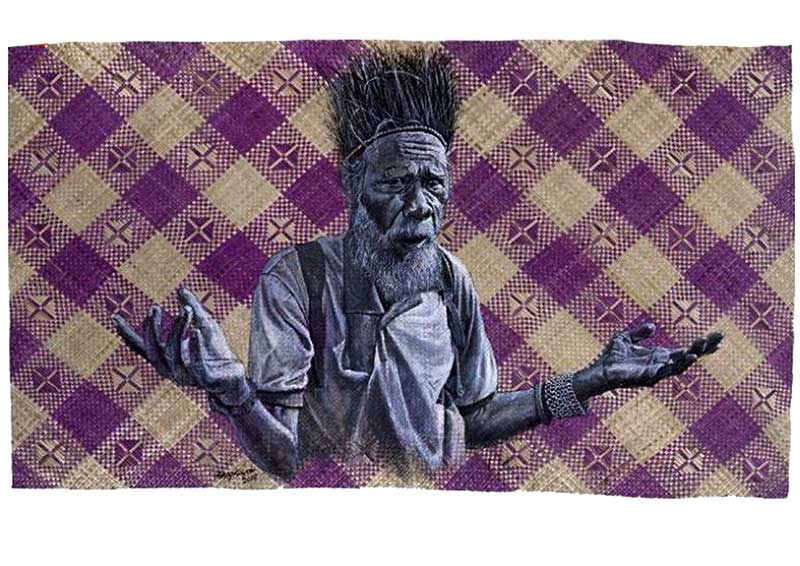
What is Your Reaction?
 Like
1
Like
1
 Dislike
0
Dislike
0
 Love
0
Love
0
 Funny
0
Funny
0
 Angry
0
Angry
0
 Sad
0
Sad
0
 Wow
0
Wow
0




































































